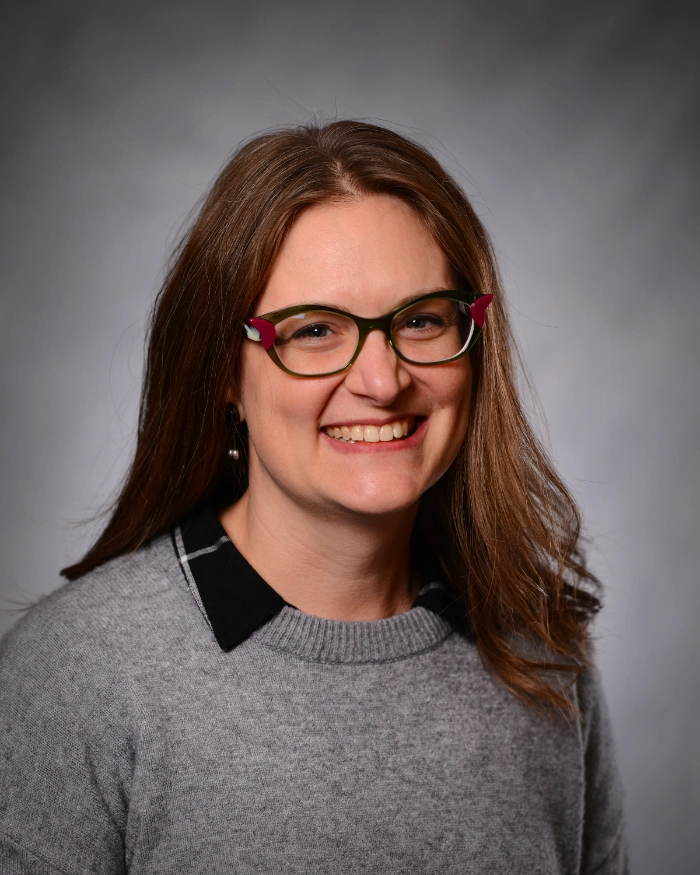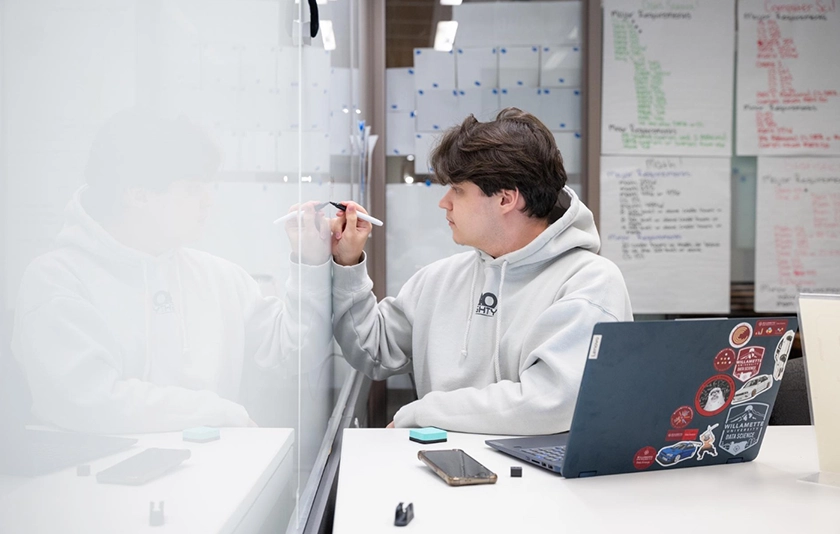
In her third year of law school, Sarah Schra JD’25 knew she wanted hands-on legal experience — something that would allow her to work directly with clients and make an impact. Drawn to both immigration and juvenile law, she found the perfect opportunity in Willamette Law’s Immigration Clinic.
There, she learned to combine the intellectual rigor of legal analysis with the empathy and trust required to serve clients effectively. Her experience became especially meaningful while helping a young client file an asylum application.
At the start of any case, clinic students are given only the bare facts: name, country of origin, date of birth, and current legal status. Before meeting their clients, students develop interview plans, research asylum law, review case law, and meet with Professors Sarah Purce and Beth Zilberman, who supervise the clinic.
“A fundamental principle of the clinic is that the students are in control of their cases, with the safety net of the professors’ help,” says Zilberman. Professors are available to answer questions and offer feedback, but students are expected to take the lead.
Schra embraced this responsibility. “I might go into an interview with an outline of where I need more information, but often there are a lot of gaps,” she explains. “It can take several interviews to fully understand a client’s story.”
In this particular case, Schra conducted multiple interviews — not only with her client, but also with the client’s sibling, who offered critical context and details. Because of the client’s age, the interviews had to be shorter and more frequent, requiring Schra to be adaptable in both pace and communication style. One major discovery: the client had preexisting learning disabilities that had never been formally documented, but which could have strengthened their claim for asylum.
“We may never have known about some vital information without thorough interviews and family input,” says Schra. “It just goes to show how important access to legal services is. Without it, this client might not have known what to include in their application — possibly weakening their chance to obtain asylum.”
Professor Purce echoes this point, noting that access to legal assistance can be the difference between life and death. “Asylum applications are difficult, full of complex legal language, and only available in English,” she says. “For someone without a legal background, navigating that process alone is almost impossible.”
Even with her legal training, Schra found the asylum application challenging. She spent weeks gathering information, drafting and revising the application, and carefully crafting a compelling narrative — making sure the most important details appeared prominently on the front pages.
“The asylum application is extremely difficult,” she says. “It has strict legal standards and real consequences if done wrong.”
But the process was about more than paperwork. Schra had to build trust with a young client who had experienced trauma, listen to painful stories with care, and learn how to translate complex legal concepts into language that was understandable and empowering. She also learned how to identify missing — but crucial — details that could make a difference in a case.
Her work culminated in a rare opportunity: Schra appeared in immigration court as a “friend of the court.” Sitting beside her client, she ensured they understood the proceedings and that the judge understood the status of the client’s case. Because the asylum application had already been filed affirmatively, Schra successfully moved to terminate the court case — ending the removal proceedings and allowing the client to continue the asylum process without worrying about attending more hearings.
Next, the client became eligible to apply for a work permit — an enormous milestone on the path to stability.
“This was my first client,” Schra reflects. “I’ll remember the experience forever. I learned to ask better questions, to recognize how people mask their struggles, and to advocate in a way that really matters.”
Now preparing to take the bar, Schra will begin a fellowship with ECO at the Afghan Support Network. Her time in the clinic shaped not only her legal skills, but her commitment to client-centered advocacy — something she plans to carry with her throughout her career.



